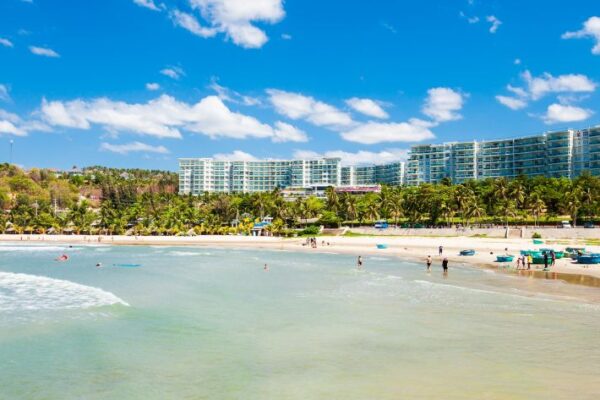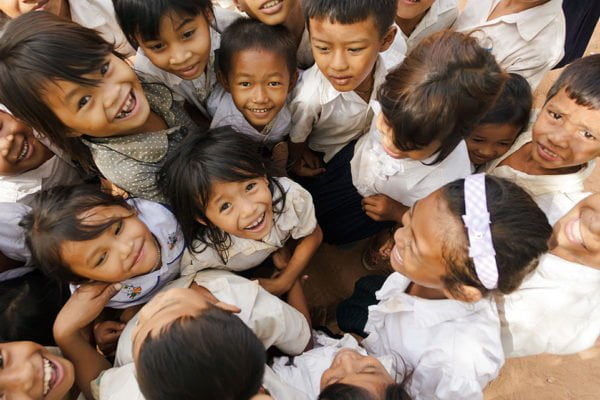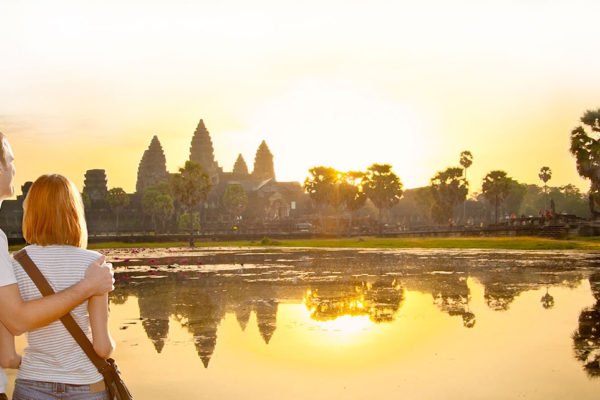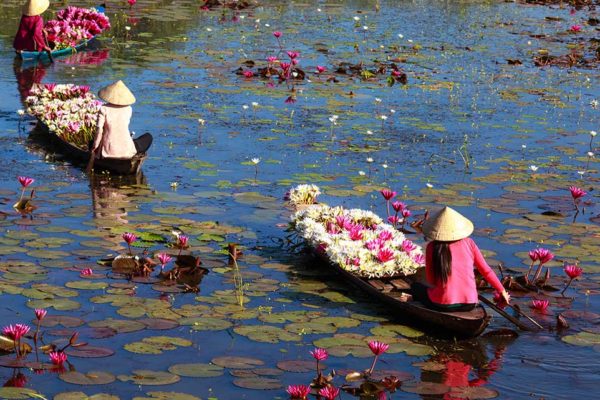Cambodia Travel Requirements: An Essential Guide to an Unforgettable Journey
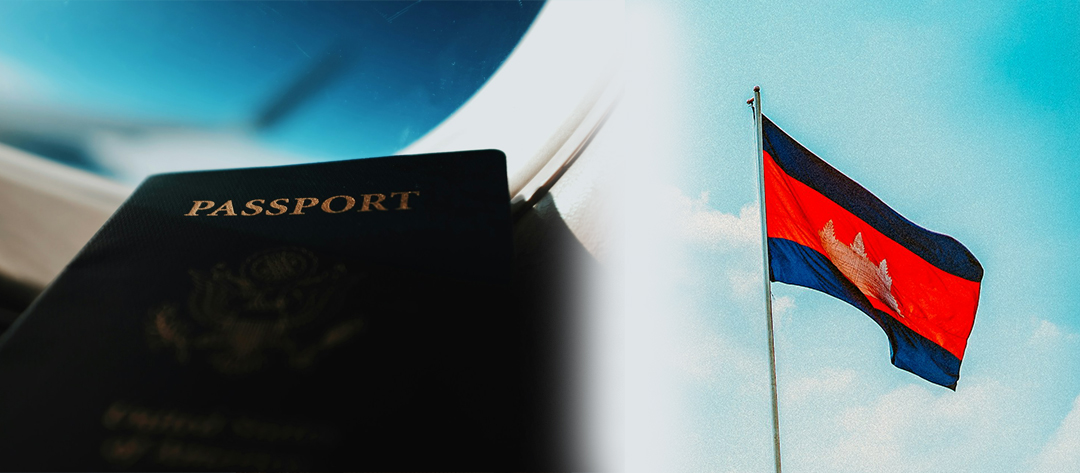
Cambodia, often celebrated as the “Kingdom of Wonder,” captivates visitors with its profound history, vibrant cultural tapestry, and diverse landscapes. To truly unlock the magic of this Southeast Asian gem and ensure a hassle-free exploration, a thorough understanding of the latest Cambodia travel requirement guidelines is paramount. This guide is meticulously crafted to demystify the entry process, transforming potential complexities into clear, actionable steps.
Navigating Cambodia’s Entry Requirements
Preparing essential documents represents the foundational step in fulfilling the Cambodia travel requirements. This section provides a definitive breakdown of everything necessary for a seamless entry into the country.
Passport Essentials for a Cambodian Journey
A valid passport serves as the primary gateway to Cambodia. It must be valid for at least six months beyond the intended date of entry. For traditional embassy visas or visas on arrival, the passport must contain at least one blank visa page. Entry may be refused if a passport is damaged or has missing pages. Upon arrival, travellers must ensure their passport receives an entry stamp and may need to retain any departure forms. Cambodian immigration officials now collect fingerprints electronically upon entry.
Unlocking Cambodia: Visa Options Explained
Most visitors to Cambodia will need a visa, either in advance or upon arrival, unless they are citizens of a visa-exempt country. Citizens of certain countries, primarily ASEAN member states, can enter Cambodia without a visa for specified durations (e.g., 7 to 30 days depending on nationality).
- Visa on Arrival (VOA)
Nationals of any country may obtain a visa on arrival at international airports and major land border crossings. The process requires an application form, two 2×2-inch passport photos, a valid passport, and the fee in USD cash. The cost is USD 30 for a tourist visa and USD 35 for a business visa. Only crisp, clean USD banknotes are accepted. A VOA allows for a maximum stay of 30 days.
- Electronic Visa (e-Visa)
Introduced in April 2006, the e-Visa is a convenient online option available at this website. The application process involves filling out an online form, making a secure payment by credit card, and downloading the e-Visa certificate. The fee is USD 30 for a Tourist Visa and USD 35 for a Business Visa, with some sources indicating an additional processing fee of USD 6.
The e-Visa is valid for 3 months from the date of issue and allows for a single entry with a maximum stay of 30 days. Processing time usually takes about 3 business days. E-Visas are accepted at specific international airports, including Phnom Penh, Siem Reap Angkor, and Sihanoukville, as well as at major land border crossings.
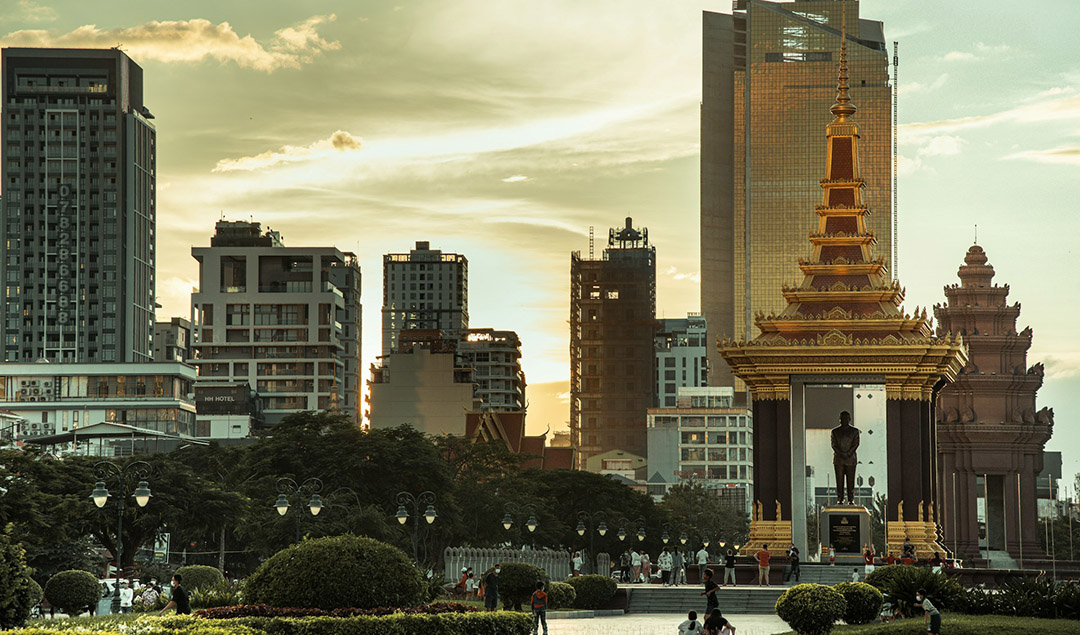
- Embassy/Consulate Application
Travelers can apply for a visa in person or by mail at a Cambodian embassy or consulate. The fee is USD 30 for a tourist visa and USD 35 for a business visa, typically payable by Money Order or Cashier’s Check. Processing is estimated to take 7-10 working days.
Transit passengers departing on the same arrival aircraft do not require a visa when transiting through Phnom Penh International Airport. Day trips are generally not permitted, except via Phnom Penh International Airport. Nationals of Kosovo are refused entry and transit.
The Mandatory Cambodia e-Arrival Card: What Travelers Need to Know
A significant and evolving Cambodia travel requirement is the e-Arrival Card, designed to streamline entry.
The Cambodia e-Arrival Card (CeA) became effective on July 1, 2024, for air travelers arriving at Phnom Penh and Siem Reap airports. From January 1, 2025, this system is required for ALL travelers flying into Cambodia, including those eligible for visa-free entry. This digital card replaces the traditional paper-based immigration, health, and customs forms.
Travelers can access the e-Arrival system via the official government website or the “Cambodia e-Arrival” mobile app. It must be completed at least seven days before arrival. Upon submission, an e-Arrival Card receipt with a QR code will be emailed; saving or printing this is recommended as a backup. The e-Arrival Card is a separate immigration form and is not a visa.
>> See Tour: Cambodia’s Ancient Temples & Pristine Beach
Health & Vaccination Guidelines for Cambodia Travel
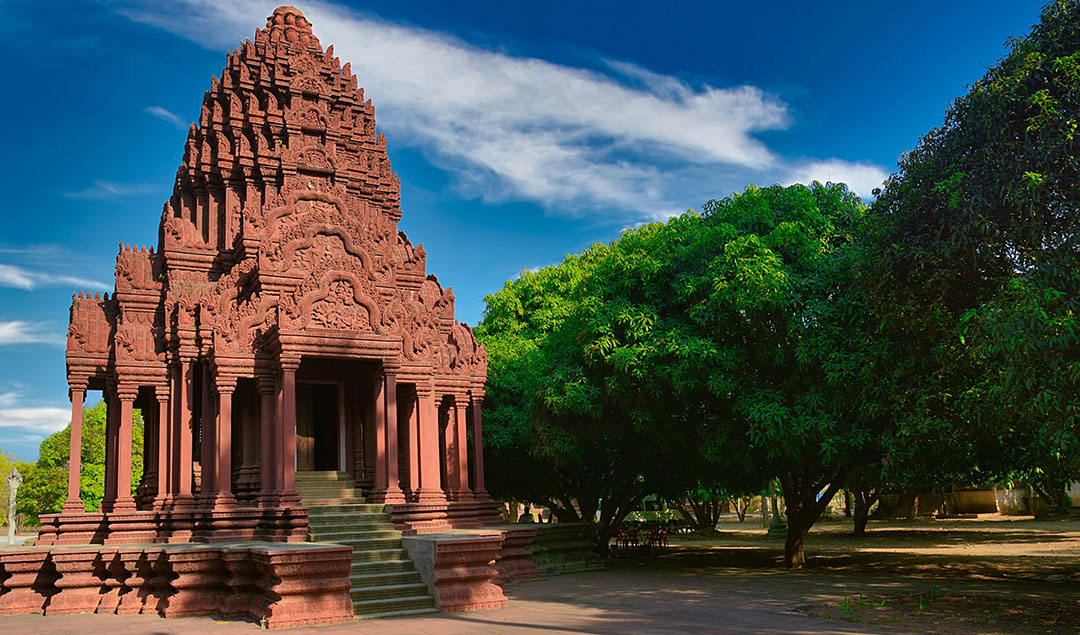
Ensuring personal health and safety represents a critical Cambodia travel requirement for an enjoyable trip.
Recommended Vaccinations for a Healthy Trip
While no specific vaccinations are required for entry unless arriving from a yellow fever risk country, several are highly recommended by health authorities to safeguard travelers’ well-being. This emphasizes that personal foresight and consultation with a healthcare professional before departure are key Cambodia travel requirements .
Travelers should be up to date on routine immunizations, including seasonal influenza, COVID-19, Measles, Mumps, Rubella (MMR), and Tetanus, Diphtheria, Pertussis (Tdap). For food and waterborne diseases, Typhoid and Hepatitis A are recommended for most travelers, especially for extended stays or remote regions, as typhoid is endemic. An additional adult booster for Polio is also recommended.
Regarding mosquito-borne diseases, Japanese Encephalitis is recommended depending on the itinerary, particularly for rural areas or long-term stays, with most cases from May to October. Chikungunya vaccination is recommended as Cambodia is a high-risk region. Yellow Fever vaccination is required if traveling from a country with a risk of transmission. For animal-related risks, Rabies is a concern, and the vaccine is recommended for long-term travellers or those with animal contact. Other recommended vaccines include Hepatitis B, Pneumonia, Meningitis, Chickenpox, and Shingles.
Staying Safe: Malaria and Other Health Considerations
Beyond vaccinations, understanding local health risks and practicing general precautions are vital.
Malaria is present in forested rural areas, with peak transmission during the rainy season. However, Phnom Penh, Siem Reap city (including Angkor Wat), and areas near Tonle Sap Lake have negligible or no malaria transmission. Drug resistance is a concern, so consulting a travel health specialist for appropriate antimalarials is crucial.
Other infectious disease risks include Dengue, Chikungunya, and Zika, all mosquito-borne and endemic. Protection from mosquito bites is essential. Travelers’ Diarrhea is common, necessitating strict food and water safety practices: consuming bottled water, avoiding street vendors, and choosing well-cooked meals. Leptospirosis and Melioidosis risks increase during the rainy season; avoiding swimming or wading in contaminated water is advised.
General health precautions include comprehensive bug bite prevention (repellents, nets, protective clothing) and maintaining hand hygiene. Travelers should bring sufficient prescription medications, as local pharmacies may have variable quality or counterfeit drugs. Most local medical facilities do not meet international standards; for serious care, Bangkok or Singapore is often recommended.
>> See Tour: Cambodia In Depth
Other Crucial Considerations for a Cambodian Adventure
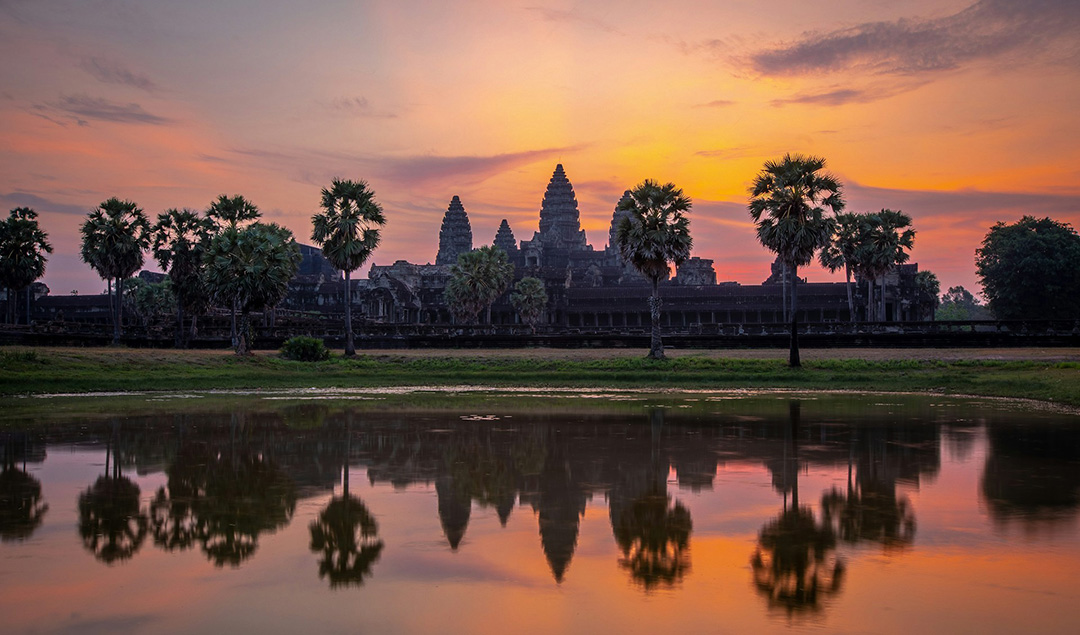
Onward Ticket & Sufficient Funds: Proving Travel Plans
Immigration officials may require proof of intent to leave Cambodia and the ability to support oneself during a stay. While not universally enforced for all nationalities, a return or onward ticket is officially listed as a requirement for all foreign citizens. Airlines may check this before boarding. Travelers may also need to demonstrate sufficient funds for their stay, which should be reasonable for the planned activities and duration.
Protecting a Journey: Travel Insurance for Cambodia
While not strictly mandatory for entry, travel insurance is highly recommended by the Royal Embassy of Cambodia and travel experts to safeguard a trip. The Royal Embassy of Cambodia explicitly recommends securing a travel insurance policy that covers medical expenses of up to USD 50,000. This recommendation implicitly acknowledges the potential for medical emergencies and limitations of local healthcare.
Recommended coverage includes at least USD 50,000 in Emergency Medical Coverage (specifically covering COVID-19 treatment) and at least USD 100,000 in Medical Evacuation Coverage. Trip Cancellation Coverage is also recommended for prepaid and non-refundable trip expenses. This relatively small investment provides significant peace of mind against unforeseen events.
Extending a Stay & Avoiding Penalties: Cambodia Visa Extensions and Overstay Rules
For those captivated by Cambodia’s charm, extending a stay is possible, but understanding the rules is essential to avoid penalties.
- Visa Extensions
A Tourist Visa (Type T) can be extended upon entry for another 30 days at the Cambodia Immigration Office. The process cannot be completed online. Travelers can extend it themselves at the Department of Immigration (No. 322 Russian Federation Boulevard, opposite Phnom Penh International Airport) or utilize a travel agent. Requirements include an original passport (valid for 6+ months), a blank page, the extension fee in USD (typically USD 30-50), and additional documentation. A Business Visa (Type E) also allows a 30-day stay and can be extended for another 30 days.
- Overstay Penalties
A penalty of USD 5 is incurred for each day a visa is overstayed, payable at the Immigration office upon departure. For short overstays (1-30 days), the consequence is primarily a fine, with generally no major issues for future re-entry. However, for longer overstays (over 30 days), travelers risk imprisonment, deportation, and a future ban on re-entering Cambodia. It is strongly advised not to overstay.
Safety and Security Tips for a Journey
While not a direct Cambodia travel requirement for entry, understanding local safety and security aspects is crucial for a truly seamless and enjoyable experience.
General awareness is key: travelers should be aware of their surroundings, especially at night and in isolated areas, and utilize hotel safes for valuables. Petty crime, particularly bag snatchings by thieves on motorbikes, is common and often results in injury. Belongings should be kept out of sight, and bags should be carried on the side furthest from the road. Female travelers should exercise caution with strangers and offers of transport.
Warnings regarding drink spiking in bars and the risk of methanol poisoning from home-brewed or counterfeit alcohol are significant. Travelers should never leave drinks unattended and only purchase alcohol from licensed establishments, checking bottle seals and labels.
Cambodia remains heavily affected by landmines and unexploded ordnance, often in unmarked areas. Travelers should never stray off main routes in rural areas, including around temple complexes, and must never pick up metal objects. Road safety is another primary concern, with Cambodia experiencing a high rate of road traffic accidents. Traveling after dark significantly increases risk, and wearing a helmet on motorcycles is mandatory. Utilizing ride-hailing apps for fixed prices can enhance safety.
Regarding local laws and cultural differences, possession, trafficking, and manufacture of illegal drugs carry severe penalties, including lengthy jail sentences. Police frequently raid venues frequented by foreigners and may require drug tests. A modest dress code is expected at religious sites like Angkor Wat; shoulders should be covered, and skirts or shorts should extend below the knee. Photography near military bases is prohibited, and permission should be sought before photographing people, especially monks.
>> See Tour: The Very Best Of Cambodia
Final Thoughts
As you prepare for an adventure, understanding and fulfilling the travel requirements for Cambodia is the first step towards a remarkable journey. This includes ensuring your passport is valid for at least six months and obtaining the appropriate visa—whether it’s a convenient e-Visa, a straightforward Visa on Arrival, or a traditional embassy application. Additionally, completing the mandatory e-Arrival Card is essential for smooth entry into the country.
To ensure you are fully prepared, prioritize your health by getting the recommended vaccinations and staying informed about local health and safety guidelines. It’s also important to have proof of onward travel, sufficient funds, and comprehensive travel insurance, which will provide you with peace of mind as you explore Cambodia’s rich history, vibrant culture, and stunning landscapes.
Navigating the complexities of Cambodia’s travel requirements can help you curate authentic experiences, making your dream trip just a click away! Let Asia Pioneer Travel assist you in planning a personalized Cambodian escape today—a journey into the heart of ancient wonders and warm hospitality awaits!

